The Case For Non-Judicial Timeshare Foreclosures
Currently, there are eighteen states in the United States that have some form of a non-judicial process which may apply to the foreclosure of liens against timeshare interests. The American Resort Development Association (ARDA), the timeshare trade association, has been a primary backer of legislation to enable and implement such laws, and continues to vigorously pursue the adoption of such laws in those states that currently do not have them.
Timeshare Estates vs. Licenses
By way of background, there are two types of timeshare interests - timeshare estates (commonly referred to as “deeded interests”) and timeshare licenses (commonly referred to as “right-to-use interests”). A timeshare license is a right to use an accommodation only. A timeshare estate is a right to use an accommodation coupled with an ownership interest in real property. Since timeshare estates include an interest in property, they are deeded and, like other deeded interests in real property, liens against such deeded interests are normally foreclosed using a judicial process.
Why a Judicial Process Isn’t Always Necessary
Permitting the use of a non-judicial foreclosure process with respect to real property interests has always been somewhat controversial since ownership of real estate is considered an inalienable right and justifies a rigorous judicial process complete with judicial oversight. So why should a state permit a non-judicial process for timeshare estates?
First, timeshare estates are never homestead property. The protections afforded the ownership of one’s primary residence, which can justify a rigorous judicial process, are not present with a timeshare interest. Timeshare estates are really vehicles to provide a consumer with a prepaid vacation, and are only grounded in real estate to meet specific tax, accounting, securities law, and regulatory concerns.
Canceling these ownerships when the owners are not fulfilling their mortgage or assessment obligations should not have to go through the heavy lift and expense attendant to homestead real estate judicial foreclosures. Defendants generally do not contest these foreclosure actions. In most cases, they do not appear in court or respond to the complaint, and often do not acknowledge the existence of the foreclosure proceedings. It appears that many owners no longer wish to retain their timeshare interests, as evidenced by their default—particularly in cases involving foreclosures based on unpaid maintenance fees, which are often for relatively modest amounts.
Second, using a non-judicial process will help to unclog crowded court dockets by removing non-controversial matters. There are also usually still some payment of fees, such as filing and recording fees, so court revenue is protected.
Stronger Protections and a Smarter Process
Finally, carefully drafted legislation, as routinely proposed by ARDA, includes protections for owners that are often more stringent than those for non-judicial foreclosure for other types of property. For example, owners can opt-out of the non-judicial foreclosure process for timeshare estates and can go to a judicial process, the non-judicial process cannot be used to pursue a personal deficiency judgment, and the non-judicial process requires strict adherence to service requirements.
Non-judicial foreclosure of liens against timeshare estates just make good sense. MDK continues to partner with ARDA in efforts to establish non-judicial foreclosure options throughout key jurisdictions.
Key Takeaways
- Eighteen states currently allow for some form of non-judicial foreclosure of liens against timeshare interests, with efforts underway to expand this option.
- Timeshare estates are deeded interests in real property, but they are not homestead property and do not warrant the same judicial protections.
- Non-judicial foreclosure is often more efficient and cost-effective, especially in uncontested cases where owners have defaulted and are unresponsive.
- This process helps reduce court backlog while still preserving fee revenue through filing and recording requirements.
- Proposed legislation, often led by ARDA, includes strict consumer protections and opt-out options to ensure fairness.
This publication is for informational purposes only and does not constitute an opinion of MDK.
Do not rely on this publication without seeking legal counsel.
Related Posts
It all starts with a conversation
Let’s talk about how MDK can help you streamline operations, protect your interests, and drive results. Contact Brittany Anderson today to schedule your introduction call.
Schedule a Call





